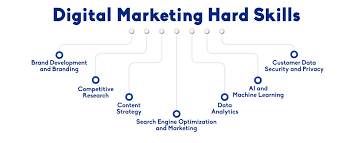Mastering Paid Search Optimization Strategies for Online Success
The Power of Paid Search Optimization
In the competitive landscape of digital marketing, paid search optimization has emerged as a powerful tool for businesses looking to enhance their online visibility and drive targeted traffic to their websites. By strategically investing in paid search advertising, businesses can effectively reach their target audience and achieve measurable results.
What is Paid Search Optimization?
Paid search optimization, also known as pay-per-click (PPC) advertising, involves placing ads on search engine results pages (SERPs) and paying a fee each time a user clicks on the ad. This form of online advertising allows businesses to bid on specific keywords related to their products or services, ensuring that their ads appear prominently when users search for those keywords.
The Benefits of Paid Search Optimization
One of the key benefits of paid search optimization is its ability to deliver quick and measurable results. Unlike organic search engine optimization (SEO), which can take time to see significant improvements in rankings, paid search ads can generate immediate traffic to your website.
Additionally, paid search optimization offers precise targeting options, allowing businesses to tailor their ads based on factors such as location, demographics, and user behaviour. This level of targeting ensures that your ads are seen by the most relevant audience, increasing the likelihood of conversions.
Best Practices for Paid Search Optimization
To maximise the effectiveness of your paid search campaigns, it’s essential to follow best practices for optimization. This includes conducting thorough keyword research to identify high-performing keywords, creating compelling ad copy that entices users to click, and continuously monitoring and adjusting your campaigns based on performance data.
Furthermore, implementing conversion tracking allows you to measure the success of your campaigns and make data-driven decisions to improve ROI. By testing different ad variations and landing pages, you can refine your strategy over time and achieve optimal results from your paid search efforts.
Conclusion
Paid search optimization is a valuable tool for businesses seeking to increase their online visibility and drive targeted traffic to their websites. By leveraging the power of PPC advertising and following best practices for optimization, businesses can reach their target audience effectively and achieve tangible results in the competitive digital landscape.
Top 6 Strategies for Optimising Paid Search Campaigns
- Use relevant keywords in your ad copy to improve click-through rates.
- Regularly monitor and adjust your bids to ensure optimal performance.
- Create compelling ad extensions to provide additional information to users.
- Test different ad variations to identify what resonates best with your target audience.
- Optimise landing pages for conversions by ensuring they are relevant and user-friendly.
- Track key metrics such as click-through rate, conversion rate, and return on ad spend (ROAS) to measure success.
Use relevant keywords in your ad copy to improve click-through rates.
Utilising relevant keywords in your ad copy is a crucial strategy in paid search optimization to enhance click-through rates. By incorporating keywords that align closely with what users are searching for, you increase the likelihood of your ads being displayed to the right audience. This not only improves the relevance of your ad but also entices users to click through to your website, ultimately driving more qualified traffic and potential conversions. Strategic placement of relevant keywords in your ad copy can significantly impact the success of your paid search campaigns by attracting the attention of users actively seeking the products or services you offer.
Regularly monitor and adjust your bids to ensure optimal performance.
Regularly monitoring and adjusting your bids is a crucial tip for maximising the effectiveness of paid search optimization. By keeping a close eye on your bid performance and making timely adjustments, you can ensure that your ads are competitive and positioned for optimal visibility. This proactive approach allows you to fine-tune your bidding strategy based on real-time data, ultimately driving better results and improving the overall performance of your paid search campaigns.
Create compelling ad extensions to provide additional information to users.
Creating compelling ad extensions is a crucial tip for enhancing paid search optimization. By including additional information such as site links, callouts, and structured snippets in your ads, you can provide users with more context about your products or services. These extensions not only make your ads more informative and engaging but also increase the chances of users clicking on them. By utilising ad extensions effectively, businesses can improve the visibility and effectiveness of their paid search campaigns, ultimately driving more relevant traffic to their websites.
Test different ad variations to identify what resonates best with your target audience.
Testing different ad variations is a crucial tip in paid search optimization as it allows businesses to pinpoint what resonates most effectively with their target audience. By experimenting with various ad elements such as headlines, copy, and visuals, businesses can gather valuable insights into which messaging and creatives drive the highest engagement and conversions. This iterative approach not only helps in refining ad campaigns for better performance but also ensures that marketing efforts are tailored to meet the preferences and behaviours of the specific audience segments, leading to more impactful results in paid search advertising.
Optimise landing pages for conversions by ensuring they are relevant and user-friendly.
To maximise the effectiveness of your paid search campaigns, it is crucial to optimise landing pages for conversions by ensuring they are both relevant and user-friendly. A well-crafted landing page tailored to match the ad’s messaging not only enhances user experience but also increases the likelihood of conversions. By providing clear and concise information, incorporating strong call-to-action buttons, and ensuring easy navigation, businesses can create a seamless journey for users from clicking on the ad to completing a desired action. Optimising landing pages in this manner not only improves user engagement but also boosts overall campaign performance and ROI.
Track key metrics such as click-through rate, conversion rate, and return on ad spend (ROAS) to measure success.
Tracking key metrics such as click-through rate, conversion rate, and return on ad spend (ROAS) is essential for measuring the success of paid search optimization campaigns. By monitoring these metrics closely, businesses can gain valuable insights into the effectiveness of their ads and make informed decisions to improve performance. The click-through rate indicates the percentage of users who clicked on the ad, while the conversion rate measures the proportion of users who completed a desired action, such as making a purchase. Calculating the return on ad spend helps businesses understand the profitability of their advertising efforts. By analysing these key metrics, businesses can refine their strategies and maximise the impact of their paid search campaigns.




